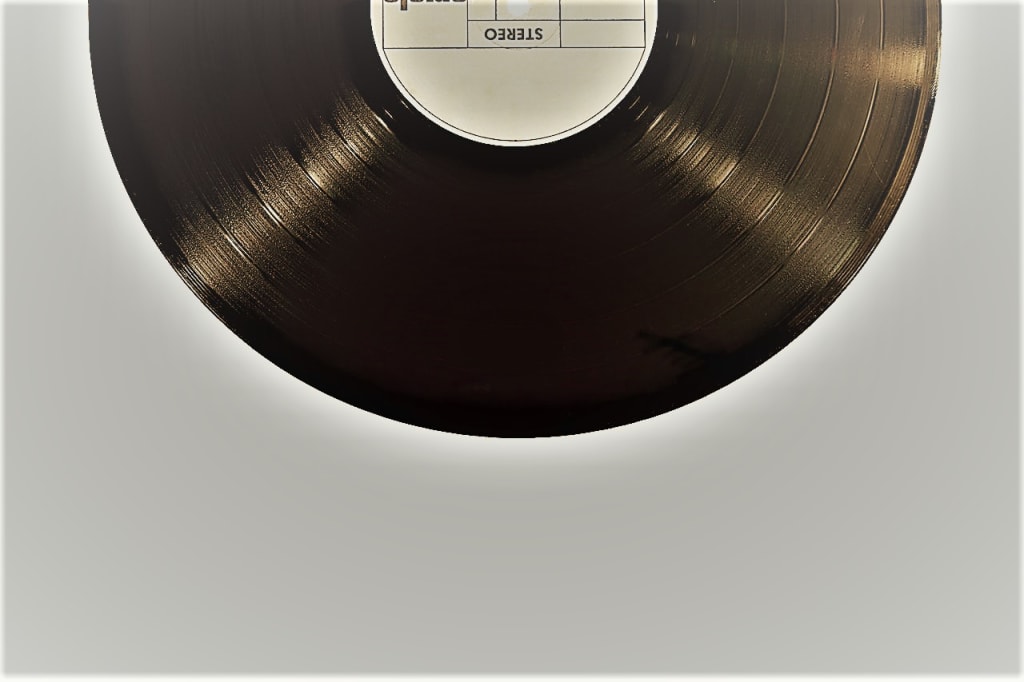Storyteller
The Art of Music

I have always been drawn to music. Even at seven years of age, my heart and feet beat joyously to the sound of Tchaikovsky’s Nutcracker Suite or a Polonaise by Chopin. I am now much older, and over the years, my musical world has evolved to include the Beatles, Cat Stevens, Bruce Springsteen, Jimmy Buffett, Dan Fogelberg, Nirvana, NSYNC, Disturbed, K-Pop Bands, a large assortment of Italian and Spanish vocalists, and many, many others. Gravitating to a diverse array of music has consistently been an avenue I’ve chosen, through good and bad times, and, if for no other reason other than the sheer wonder of music that never fails to resonate deep within, always bringing solace and joy.
While listening recently to a station on Pandora (Dan Fogelberg Radio), I heard a large assortment of songs by not only Fogelberg himself, but by Jim Croce, Jackson Browne, Carole King, Cat Stevens, and many other artists, and I was struck by the stark contrast in the songwriting styles of the 70’s and 80’s when compared with more recent music. Musicians from the earlier eras seemed to largely fill their lyrics with high emotions, descriptive imagery, and amazing poetry, and in doing so, were able to weave illustrious tales complimented by musical tunes. Indeed, these musicians were not simply lyricists or composers: they were masterful storytellers.
As I’ve rekindled my love for 70’s and 80’s music with each song I’ve heard, I’ve felt a gamut of emotions. With the lyrics, visual highlights have flown through my mind, each song unfolding an array of memories and evoking a multitude of visual, emotional, and auditory delights for my senses. I will attempt to identify some of these artists’ songs that to this day stand out to me, not only for the vocals or tunes, but also for their appeal as a poetic storyteller.
The late, great Dan Fogelberg is a huge favorite. Not only was he equipped with an angelic voice that covered several ranges allowing him to harmonize and do his own background vocals, he was a master poet, musician, composer, and lyricist. Fogelberg is largely known for the song, “Same Old Lang Syne”, often played during the Christmas holidays. The song details the story of Fogelberg’s return home where he unexpectedly encounters his former lover in a convenience store on Christmas Eve. The story – or rather the song – is a special kind of gift in and of itself, not only because of its lyrical magic, but also because of the beauty in its lovely musical composition, based upon Tchaikovsky’s “Auld Lang Syne”. I was driving along the interstate on a cold, winter day the very first time I heard this song. Of course, the tune was captivating and beautiful, but even more so, I was overwhelmed by the emotion, a mixture of joy and regret, encompassed so strongly in the lyrics. It was wistful and romantic in a tragic sort of way, and as I listened to the words, it struck a chord within me so deeply that I felt I personally knew the man who had written it. To this day, I identify just as much with the song as I did at twenty-three years of age when I first heard it.
“Met my old lover in the grocery store
The snow was falling Christmas Eve
I stole behind her in the frozen foods
And I touched her on the sleeve…..
…..We drank a toast to innocence
We drank a toast to now
And tried to reach beyond the emptiness
But neither one knew how…..” Dan Fogelberg, “Same Old Lang Syne” (1981)
Because I fell in love with “Same Old Lang Sang” (and Fogelberg’s voice), I purchased the album from which it originated, a true masterpiece entitled The Innocent Age. The double album is a collection of songs that spins the tale of mankind’s evolution from the cradle to the grave, each song written and performed by Fogelberg. I can still remember listening to the LP for the first time, playing it on a stereo turntable while I was alone at my grandmother’s house. I was engulfed in the magical spell housed therein, each note and word enchanting me. By the second song, I knew the album was more than a mere collection of music – I knew it was a wondrous piece of art. Each song of this album embellishes life in such a unique way that it easily brings personal association and reflection for the listener.
Fogelberg’s notes on The Innocent Age credit many inspirational sources, including Thomas Wolfe and T.S. Eliot. One of my favorite songs, largely inspired by the writer and poet, Kahlil Gibran, is “The Sand and the Foam”. This song details the innocence and pathways for a child, which are too briefly entertained in life. The music and lyrics are laced with sweetness, nostalgia, and yearning for days long gone, beckoning vivid visuals with their poetic beauty.
“Dawn...like an angel
Lights on the step
Muting the morning she heralds
Dew on the grass
Like the tears the night wept
Gone long before
The day wears old…..” Dan Fogelberg, “The Sand and the Foam” (1981)
The album goes on to detail man’s evolution, touching on love, family, work, and the days preceding death. The haunting, final song of the collection is entitled “Ghosts”, and what I consider to be one of the greater pieces of poetry in the collection. Together with the echoing, chilling music, the lyrics lead the listener to the precipice of a man’s death:
“Sometimes in the night I feel it
Near as my next breath and yet untouchable
Silently the past comes stealing
Like the taste of some forbidden sweet
Along the walls in shadowed rafters
Moving like a thought through haunted atmospheres
Muted cries and echoed laughter
Banished dreams that never sank in sleep
Lost in love and found in reason
Questions that the mind can find no answers for
Ghostly eyes conspire treason
As they gather just outside the door….” Dan Fogelberg, “Ghosts” (1981)
Alas, I could go on and on about Fogelberg’g amazing musical abilities, but there are many other artists who also deserve credit for their story weaving lyrics.
Of the many artists I’m fond of, Bruce Springsteen springs to mind (my apologies, pun intended). While I’ve enjoyed his diverse musical talent for many years, I did not become familiar with him until I attended college in the 70’s. My university, being Southern based, was filled with out-of-state attendees from New York and New Jersey and nearly every one of them was a huge Springsteen fan. His album, Born to Run, was always played at parties I attended. In addition to the title cut from the album (that’s so amazing), “Thunder Road” is also one of my all-time favorite songs. I can’t remember exactly where I was when I first heard this song, but I can definitely remember singing the words out loud with several others whenever it was played – in parties, in cars, in bars – wherever you happened to be. “Thunder Road” is story woven from carefree youthful days and desperate love, a description of someone who is hell bent on going to the ends of the earth in search of fame and fortune - and you’re either with him or you’re not. The song is haunting, engulfed in a force of power, while being wrapped in freedom and youthful destiny.
“A screen door slams, Mary's dress sways
Like a vision she dances across the porch
As the radio plays
Roy Orbison singing for the lonely
Hey, that's me, and I want you only
Don't turn me home again
I just can't face myself alone again….." Bruce Springsteen, “Thunder Road” (1975)
Admittedly, the music for “Thunder Road” is just as haunting as its lyrics, and both create inviting, vivid imagery for the listener. Who can hear the words Springsteen sings without the sound of a screen door slamming or Roy Orbison’s voice looming in their head? You can feel the eagerness and anticipation in the lyrics so much so that it makes your heart palpitate. As the music and singer crescendo near the song’s completion, you feel excited, exuberant, and ready for whatever life brings. Springsteen’s massive talent and success have easily proven his worth as musician, poet, and storyteller, and this song is among his best. His lyrics have a powerful effect on the listener, as proven time and again over the years with his many songs, scores, and Grammy’s.
Jackson Browne is another lyricist who often portrays a lengthy story within the narrative of a song. Browne is a storyteller in all of his songs – purely an emotional, poetic lyricist. Combined with his soft, lilting voice, his songs always reflect Browne’s personal struggles in life and love, as well as his determination to persevere. His songs are wistful, deep in thought, and often filled with regret. Browne’s music factored into a large part of my life in my early twenties. Maybe it was the sadness in some of his lyrics or his desire for direction - or simply the sweet sound of his voice - with which I connected. I remember putting his album, The Pretender, on my stereo turntable and opening my bedroom window so that I could hear the music outside as I laid out in the hot, summer sun during summer break. The heat was brutal, sweat ran in rivets from my body, and my eyes were closed to the sun’s glare, but all I could focus on was the music that drifted from the window across the stagnant summer air to reverberate and settle within me:
“I've been aware of the time going by
They say, in the end, it's the wink of an eye
When the morning light comes streaming in
You'll get up and do it again, Amen….
Caught between the longing for love
And the struggle for the legal tender
Where the sirens sing and the church bells ring
And the junk man pounds his fender
Where the veterans dream of the fight
Fast asleep at the traffic light….." Jackson Brown, “The Pretender” (1976)
I don’t personally know anyone who can deny the appeal of Carole King’s music. I listened to my cassette copy of Tapestry when I was in high school so much that I literally wore the tape out. It was only King’s second LP, but it packed a punch with every song on it becoming a single hit that rocked the Billboard. I have to wonder if every other listener, particularly females, identified as much as I did with King and her lyrics. Her songs encompass the full spectrum of human emotion and weave a wistful tale of love, regret, friendship, and life. The songs on Tapestry are so engrained in my memory that I can still sing along with them whenever they are played.
“One more song about moving along the highway
Can't say much of anything that's new
If I could only work this life out my way
I'd rather spend it being close to you
But you're so far away
Doesn't anybody stay in one place anymore?
It would be so fine to see your face at my door
Doesn't help to know you're so far away
Yeah, you're so far away….." Carole King, “So Far Away” (1971)
Jimmy Buffett is another music favorite from my college days. My best friend, Barbara, first introduced me to Buffett’s music as we were headed to college in a little green Volkswagen Bug as she proceeded to sing every Buffett tune from his albums Changes in Latitudes, Changes in Attitudes and A White Sport Coat and a Pink Crustacean. Being trapped in the car, I had no choice but to listen to her sing his songs for two hours. Needless to say, following her outstanding performance, I remained intrigued by Buffett's lyrics, and I was eager –and curious - to hear the actual albums or Buffett himself. Once I’d done that, just as my friend Barbara had, I fell in love with Buffett and his down-to-earth musical storytelling. It is obvious from the diverse and vast number of songs he’s written that Buffett’s life has been packed full of personal experience and growth, and he details nearly all of it (as well as the lives of those he’s met) in his music and lyrics. My absolute favorite songs by him is “He Went to Paris”, the sad tale of a man’s life that seemed to slip quickly through his fingers during years of marriage, toil, war, and death, but still, in the end, he was appreciative of the life he’d been given, not choosing to regret any second of it.
“While the tears were a' fallin'
He was recallin'
The answers he never found
So he hopped on a freighter
Skidded the ocean
And left England without a sound
Now he lives in the islands
Fishes the pylons
And drinks his green label each day
He's writing his memoirs
And losing his hearing
But he don't care what most people say
"Through eighty six years
Of perpetual motion, "
If he likes you, he'll smile and he'll say,
"Some of it's magic,
And some of it's tragic,
But I had a good life all the way....." Jimmy Buffett, "He Went to Paris (1973)
“He Went to Paris” is a lovely, moving, and emotional piece of poetry and music. I will always fondly associate Buffett with my youth and love of the ocean. I spent many an hour listening to his music back then, as well as much later in my years. After all, there is nothing like going to a Buffett concert – it’s an entirely different world and those in attendance, an entirely different species.
And last, but certainly not least, I have to touch on the music and lyrics of Jim Croce. Croce was like a character actor, his face and voice filled with the embodiment of life’s stories and experiences. His gravelly voice had a depth that reached within you and warmed your soul. He was an everyday kind of guy, one you could easily identify with in so many ways, and he wasn’t shy about sharing his mistakes or lessons learned. I first became familiar with him during a PBS special not long after he died so tragically in a plane crash in 1973. There was charisma in every detail of Croce’s appearance, his music, the way he spoke, and the way he sang.
One of my favorite Croce songs, is “Lover’s Cross”. The song is a bittersweet tale of love that may have been doomed from the start. It’s obvious to the listener that the singer has given all he can to make the relationship work, but cannot take anymore. The imagery Croce uses in his lyrics is emphatically profound and becomes vivid in the listener’s imagination.
“I guess that it was bound to happen
Was just a matter of time
Now I've come to my decision
And it's a one of the painful kind
'Cause now it seems that you wanted a martyr
Just a regular guy wouldn't do
But baby, I can't hang upon no lover's cross for you….
“Still I hope that you can find another
Who can take what I could not
He'll have to be a super guy
Or maybe a super god
'Cause I never was much of a martyr before
And I ain't 'bout to start nothin' new
And baby, I can't hang upon no lover's cross for you”….Jim Croce, “Lover’s Cross” (1973)
While not as elaborate a lyricist as some, Croce’s lyrics are no less powerful or packed with emotion. Croce was an extremely likeable singer, his songs were easy to like and remember, and as an impressionable young teenager, I was drawn to his tales of life and love. The tragedy of his early death only served to heighten his appeal for me. He, among many others, was a talented musical soul lost to this earth far too soon.
The artists and songs I have highlighted are some of my personal favorites, but by no means are they the only ones who deserve accolades or recognition– in past or current times. Music is a broad, diverse spectrum that reaches out and touches so many, and it has filled my life for as long as I can remember. Music has the ability to make people connect and understand in ways beyond their understanding or dreams. It gives life to inanimate objects and memories, connects us to today and yesterday’s worlds, while forging a path to tomorrow’s unknown mysteries. I thank all of the musical artists and the difference they’ve made in my life and so many others over the years for I cannot imagine a day without the wonder of music. Without music, I would merely exist and not truly live.
About the Creator
Cindy Calder
From Charleston SC - "I am still learning." Michelangelo






Comments (1)
Great list! I love how you incorporated the lyrics from each song.